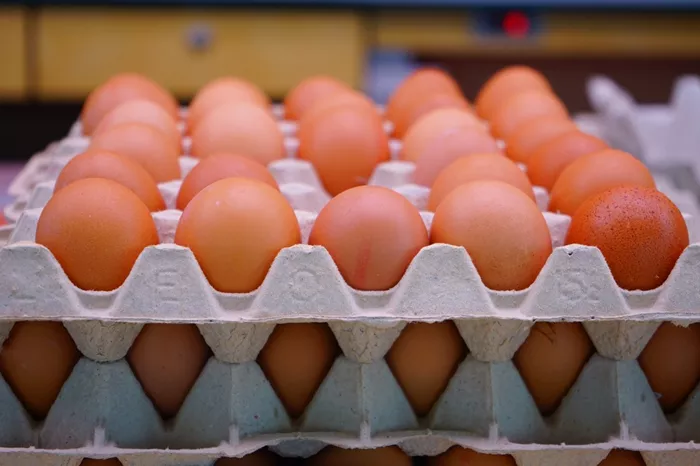The bird flu outbreak continues to spread across farm animals, raising concerns about the safety of consuming products like milk, eggs, and chicken.
However, the Food and Drug Administration (FDA) has confirmed it has not found live, infectious bird flu in commercial food products. While virus fragments have been detected in pasteurized milk, sour cream, and cottage cheese, there is no cause for alarm.
Federal authorities emphasize that the risk of contracting bird flu through food is extremely low, although certain choices—such as drinking unpasteurized milk—may increase this risk.
Experts stress that the chance of contracting bird flu from food is highly unlikely.
Elaine Vanier, DVM, an animal welfare expert at NSF International, reassured Health that H5N1, the strain of bird flu, is “not a food safety concern” and the risk of transmission through food remains low.
S. Wesley Long, MD, PhD, the medical director of diagnostic microbiology at Houston Methodist, explained that the food industry has strict safeguards to prevent infected poultry from entering the market. If a bird tests positive for bird flu, the entire flock must be destroyed, preventing contaminated poultry from being sold.
The U.S. Department of Agriculture (USDA) has also implemented regulations requiring dairy cows to test negative for Influenza A before being shipped across state lines.
Even in the unlikely event that bird flu makes its way into eggs or beef, Long emphasized that “normal cooking temperatures” (165°F or higher) will destroy the virus, along with more common bacteria like Salmonella.
Although eggs are safe to eat, a more pressing issue is the shortage of eggs. As farmers are forced to cull poultry affected by bird flu, there has been a reduction in egg-laying hens. This has resulted in a scarcity of eggs, driving prices up significantly. According to the Consumer Price Index, the average cost of a dozen large Grade A eggs has increased from $2.52 in January 2024 to $4.95 today.
The FDA has assured the public that the pasteurized milk supply remains safe, despite detecting noninfectious virus fragments in commercial dairy products. Pasteurization, a process that heats milk to kill potential pathogens, ensures the safety of milk, sour cream, and cottage cheese.
Richard J. Webby, PhD, director of the World Health Organization Collaborating Centre for Influenza Research, confirmed that tests on pasteurized milk have shown no live virus. As such, pasteurized milk is considered safe to consume.
However, experts strongly advise against consuming unpasteurized or raw milk, as it may contain the H5 virus from infected cows.
To reduce your risk of contracting bird flu, experts recommend avoiding unpasteurized milk and thoroughly cooking meat, chicken, and eggs. Nathaniel Tablante, DVM, a veterinary medicine professor at the University of Maryland, suggests proper food storage and handling, as well as washing hands thoroughly with soap and water for at least 20 seconds.
It is also important to stay informed about the latest bird flu developments by checking reliable sources like the CDC, FDA, and USDA.
Read more:
- Coconut Oil-Based Supplement Shows Promise In Improving Heart Health For Rare Condition
- Recreational Exercise Linked To Lower Type 2 Diabetes Risk, Study Finds
- Is Excessive Sleep A Sign Of Depression?


